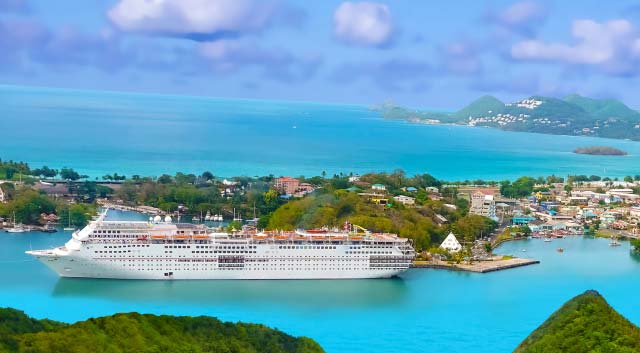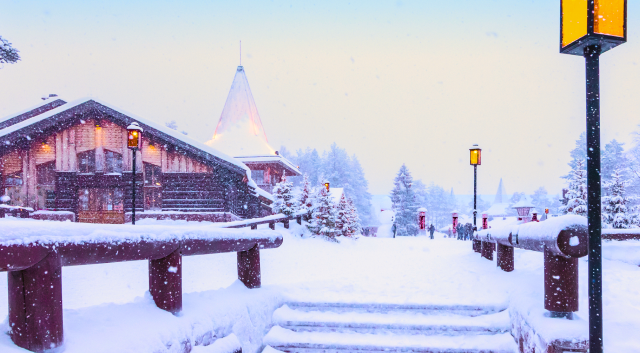The Slow Travel Trend: What it is and How it Works

What is Slow Travel?
Slow travel is an alternative to conventional travel and tourism, wherein you travel at a slower pace and with a somewhat fluid, loose itinerary. Slow travel isn’t a new concept, but it’s growing in popularity.
The definition of slow travel, however, lies more in your mindset than travel logistics. Slow travel means intentionally slowing down to immerse yourself and build meaningful connections with the local area and culture rather than ticking off a quick visit to the Eiffel Tower or the Colosseum.
How Popular Is Slow Travel?
Already a popular form of travel in Europe, surveys show that slow tourism is emerging as a major trend for U.S. travelers. 69% of American travelers say they would try to incorporate this travel style into their trip in some way.
Its growing popularity can be attributed to several factors — for example, inflation and rising costs in major tourist destinations around the world mean travelers may not get the value they want from their travel funds. Slow travel, with leisurely paced transportation, underrated towns or cities and authentic exploration, can provide more meaningful and authentic immersion over a whirlwind trip to Rome or Paris.
Likewise, the slow-paced life of COVID-19 isolation has influenced people to abandon the rush and frenzy of typical travel. The increase in remote work has also enabled people to travel without taking time off from their jobs, instead relocating their at-home office to a new destination.

Reasons to Slow Travel
Slow travel offers many advantages for travelers, such as uniquely memorable experiences and cultural enrichment.
Connect to Local Cultures
Without the pressure of a packed itinerary, slow travel allows you to explore a new place and its culture at your own pace. Between trying local cuisine or simply visiting the local markets, you can learn a lot about the lifestyles and traditions of the area. Exploring these destinations at a slow pace can allow you to gain a deeper understanding of art, history, social dynamics and other facets of the culture.
Meet New People
While rushed trips may limit your interactions to hotel receptionists and tour guides, slow travel allows you to meet and build connections with locals and fellow travelers. Whether you’re asking about the must-try restaurants, hiking trails or other local attractions, many locals appreciate a genuine interest in their home and eagerly open up to new connections.
It’s also easy to meet like-minded travelers and learn about their stories, especially if you’re staying in a hostel or similar accommodations. Slow travelers often leave their destinations with a handful of new contacts and memories of new friends.
Create More Memorable Experiences
Slow travel can test your comfort zones and lead to adventurous experiences, whether you're pushing yourself socially and befriending locals, immersing yourself in a local festival or exploring places with minimal tourist footprints. These unique experiences may offer more meaning than those on a typical tourist checklist.
Embrace the Language
Slow travel encourages you to learn and embrace the local language, especially if you stay in less-frequented destinations where many people speak limited English. Many travelers incorporate language lessons into their travels and practice the regional language with gracious locals.
Firmly Disconnect from Work
The daily grind at home can be hectic and overwhelming, and many people struggle to find relaxation when they’re on vacation and constantly stress over daily itineraries and travel logistics. Incorporating downtime into slow travel, whether enjoying a leisurely coffee in the local cafe, disconnecting in the forest or lounging on the beach, helps give your mind a break from work and normal life and allows for greater rest and personal reflection.
Appreciate Quality Over Quantity
Numerous bucket-list destinations and attractions make many travelers fear missing out if they don’t check them all off, but a slow pace allows you to relish small, meaningful moments that make the most life-changing impacts.
Major tourist attractions can distract from the true qualities of a destination, and by opting out of many, it’s effortless to romanticize other details. Rather than packing every attraction into 1 or 2 days, you can spend your days as you would a relaxing weekend at home — grabbing a pastry from a random cafe, taking cooking or art classes, reading in the park, visiting a museum exhibition or watching local musicians play a late-night set.
Impact on the Environment
Compared to conventional travel, slow travel can be a more environmentally sustainable option. Plane travel is a major contributor to carbon emissions, but staying in one place or taking advantage of regional trains and buses helps reduce your impact on the environment.
Wherever you’re going, get the most from your destination by identifying the experiences you value most, not just what tourist bucket lists tell you. Immerse yourself in mindful and meaningful travel experiences, and gain peace of mind on trip with travel insurance and assistance services from Generali Global Assistance.
B008822407


